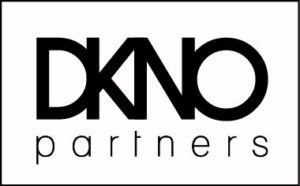Sales and import to Denmark
DKNO Partners helps you every step of the way
Entering the Danish market requires an understanding of proper VAT registration, tax reporting, customs rules and efficient shipping solutions. We advise your business on the necessary procedures so you can avoid pitfalls and focus on growth in Denmark without worry.
VAT in Denmark
Get to grips with the Danish VAT rules and rates and avoid surprises when you need to register your business correctly.
Tax in Denmark
Understand the tax obligations of foreign companies in Denmark so you can ensure correct reporting and avoid fines.
Customs in Denmark
Understand and navigate the Danish customs rules for EU and non-EU countries and get help for smooth customs clearance.
Shipping to Denmark
Discover how the choice of shipping solution affects delivery so you can meet your Danish customers' expectations.
VAT in Denmark
We help your business navigate Danish VAT regulations and ensure correct VAT registration so you can handle sales and taxes professionally. With our guidance, your business meets all Danish requirements and standards - and you can focus on your business without worry.
Contact us today for a no-obligation conversation!
What is VAT in Denmark?
VAT is a consumption tax imposed on goods and services sold in Denmark. It is an indirect tax where the consumer pays the tax, while the seller reports and pays it to the Danish tax authorities (SKAT).
VAT rates and rates in Denmark
The standard Danish VAT rate is 25%, which applies to most goods and services. For certain services, such as healthcare and educational services, as well as for exports to countries outside the EU, a zero VAT rate of 0% applies.
Who is liable for VAT in Denmark?
All companies that sell goods or services in Denmark and have an annual turnover exceeding DKK 50,000 must register for VAT. Both Danish companies and foreign companies selling to Danish customers are subject to this VAT obligation.
How is Danish VAT calculated?
To calculate VAT, multiply the price of the product or service by 0.25 (25% VAT). When VAT is included in the price, it can be calculated by dividing the price by 1.25. Correct VAT calculation ensures both legal compliance and accurate pricing.
Danish VAT
When your business operates in Denmark, it's important to stay on top of Danish VAT regulations. VAT registration and correct handling of taxes ensures that your business complies with the requirements and avoids penalties. Get an overview of how VAT works in Denmark and what requirements apply to foreign businesses.

What is VAT in Denmark?
VAT is a consumption tax imposed on goods and services sold in Denmark. It is an indirect tax where the consumer pays the tax, while the seller reports and pays it to the Danish tax authorities (SKAT).
VAT rates and rates in Denmark
The standard Danish VAT rate is 25%, which applies to most goods and services. For certain services, such as healthcare and educational services, as well as for exports to countries outside the EU, a zero VAT rate of 0% applies.
Who is liable for VAT in Denmark?
All companies that sell goods or services in Denmark and have an annual turnover exceeding DKK 50,000 must register for VAT. Both Danish companies and foreign companies selling to Danish customers are subject to this VAT obligation.
How is Danish VAT calculated?
To calculate VAT, multiply the price of the product or service by 0.25 (25% VAT). When VAT is included in the price, it can be calculated by dividing the price by 1.25. Correct VAT calculation ensures both legal compliance and accurate pricing.
Danish VAT
When your business operates in Denmark, it's important to stay on top of Danish VAT regulations. VAT registration and correct handling of taxes ensures that your business complies with the requirements and avoids penalties. Get an overview of how VAT works in Denmark and what requirements apply to foreign businesses.

We can help you!
We offer personalized advice tailored to your business, making VAT registration and reporting simple and hassle-free, avoiding errors and extra costs.
Contact us today for a no-obligation conversation!
Tax in Denmark
We advise on the tax rules in Denmark and provide you with precise guidance to understand and manage the tax obligations of your business. We make sure your solutions are adapted to the Danish tax system so your business can operate professionally and comply with all applicable requirements.
Contact us today for a no-obligation conversation!
Corporate tax in Denmark
Corporate tax in Denmark is 22% and applies to all Danish companies, regardless of ownership or business form. Deductions for costs such as salary, rent and investments can reduce the taxable income. The tax year follows the calendar year and companies must report tax annually.
Tax obligations for employers
Companies with employees in Denmark must comply with the rules for A-tax and labor market contributions. Employers are responsible for withholding A-tax from employees' salaries and paying labor market contributions. These amounts are reported to the tax authorities (SKAT) on an ongoing basis.
Special charges
Depending on your company's industry, you may be subject to specific taxes. Carbon taxes apply to businesses with high CO2 emissions and there are excise taxes on specific goods such as alcohol, tobacco and energy. These taxes can affect your operating costs and should be included in your tax planning.
Tax liabilities for foreign companies
Foreign companies with a permanent establishment in Denmark are obliged to pay tax on their income in the country. Denmark has double taxation agreements with several countries to avoid double taxation. Registration with SKAT may be necessary to ensure tax compliance.
Danish tax
Understanding Danish tax rules is essential for foreign companies looking to do business in Denmark. Proper tax management and reporting ensures your business complies with legislation and avoids penalties. Gain insight into how the tax system works in Denmark and what requirements apply to foreign companies.



Corporate tax in Denmark
Corporate tax in Denmark is 22% and applies to all Danish companies, regardless of ownership or business form. Deductions for costs such as salary, rent and investments can reduce the taxable income. The tax year follows the calendar year and companies must report tax annually.
Tax obligations for employers
Companies with employees in Denmark must comply with the rules for A-tax and labor market contributions. Employers are responsible for withholding A-tax from employees' salaries and paying labor market contributions. These amounts are reported to the tax authorities (SKAT) on an ongoing basis.
Special charges
Depending on your company's industry, you may be subject to specific taxes. Carbon taxes apply to businesses with high CO2 emissions and there are excise taxes on specific goods such as alcohol, tobacco and energy. These taxes can affect your operating costs and should be included in your tax planning.
Tax liabilities for foreign companies
Foreign companies with a permanent establishment in Denmark are obliged to pay tax on their income in the country. Denmark has double taxation agreements with several countries to avoid double taxation. Registration with SKAT may be necessary to ensure tax compliance.
Danish tax
Understanding Danish tax rules is essential for foreign companies looking to do business in Denmark. Proper tax management and reporting ensures your business complies with legislation and avoids penalties. Gain insight into how the tax system works in Denmark and what requirements apply to foreign companies.
We can help you!
We guide you through all aspects of tax management in Denmark. We ensure that your business complies with Danish tax rules and standards, so you can focus on your business without worry.
Contact us today for a no-obligation conversation!
Customs in Denmark
We help your business navigate Danish customs regulations and ensure proper documentation and handling of customs procedures so you can import and export goods smoothly. With our guidance, your business will comply with all Danish customs requirements and standards - and you can focus on your core business without worry.
Contact us today for a no-obligation conversation!
Customs rules when importing to Denmark
When you import goods into Denmark, different customs rules apply depending on whether the goods come from EU countries or non-EU countries such as Norway. From the EU, there are no customs duties on most goods, but when importing from outside the EU, tariffs may apply depending on the type of goods and country of origin.
Duty relief and trade agreements
Denmark is part of the EU's Common Customs Union, which provides duty-free trade with other EU countries. When importing from outside the EU, trade agreements, such as the EEA agreement with Norway, can provide duty exemptions or reduced tariffs on certain goods if they meet specific origin requirements.
Customs procedures when importing from EU and non-EU countries
When importing goods into Denmark from EU countries, customs procedures are simple and no customs clearance is required. When importing from outside the EU, including Norway, a customs declaration must be submitted, documenting the value, quantity and origin of the goods.
Import VAT and other taxes
When importing to Denmark from both EU and non-EU countries, you must pay Danish VAT (25%) on the value of the goods. In addition, excise duties may apply to certain goods such as alcohol, tobacco and energy. If you're importing from outside the EU, in some cases you can include customs duties and VAT in the purchase price so that the goods are not detained in customs and the customer does not have to pay customs, VAT and handling fees afterwards. This solution ensures a smoother delivery and a better customer experience.
Danish customs
When your business operates with imports to Denmark, it's crucial to be aware of the applicable customs regulations. Proper customs management ensures that your goods move smoothly across borders and that your business avoids delays and extra costs. Get an overview of the most important aspects of customs in Denmark and what is required for foreign companies.



Customs rules when importing to Denmark
When you import goods into Denmark, different customs rules apply depending on whether the goods come from EU countries or non-EU countries such as Norway. From the EU, there are no customs duties on most goods, but when importing from outside the EU, tariffs may apply depending on the type of goods and country of origin.
Duty relief and trade agreements
Denmark is part of the EU's Common Customs Union, which provides duty-free trade with other EU countries. When importing from outside the EU, trade agreements, such as the EEA agreement with Norway, can provide duty exemptions or reduced tariffs on certain goods if they meet specific origin requirements.
Customs procedures when importing from EU and non-EU countries
When importing goods into Denmark from EU countries, customs procedures are simple and no customs clearance is required. When importing from outside the EU, including Norway, a customs declaration must be submitted, documenting the value, quantity and origin of the goods.
Import VAT and other taxes
When importing to Denmark from both EU and non-EU countries, you must pay Danish VAT (25%) on the value of the goods. In addition, excise duties may apply to certain goods such as alcohol, tobacco and energy. If you're importing from outside the EU, in some cases you can include customs duties and VAT in the purchase price so that the goods are not detained in customs and the customer does not have to pay customs, VAT and handling fees afterwards. This solution ensures a smoother delivery and a better customer experience.
Danish customs
When your business operates with imports to Denmark, it's crucial to be aware of the applicable customs regulations. Proper customs management ensures that your goods move smoothly across borders and that your business avoids delays and extra costs. Get an overview of the most important aspects of customs in Denmark and what is required for foreign companies.
We can help you!
We help you navigate Norwegian customs regulations so your business can import and export goods smoothly. We ensure that all customs and documentation requirements are met so your business avoids delays and unnecessary costs.
Contact us today for a no-obligation conversation!
Shipping to Denmark
We provide guidance on the freight regulations in Denmark and give you accurate advice to manage transportation and logistics for your business. We ensure that your freight solutions meet Danish requirements and standards so your goods can be imported efficiently and legally across borders.
Contact us today for a no-obligation conversation!
Rules for shipping to and from Denmark
When shipping to and from Denmark, there are special rules to follow to avoid delays and fees. Goods being transported to or from countries outside the EU often need to go through customs control and depending on the type of goods, specific requirements may apply. Staying up to date with current freight regulations can ensure that goods are handled correctly and in a timely manner.
Choice of shipping method: Air, sea, or land transportation
The shipping method plays a crucial role in both cost and delivery time. Air freight is the fastest, but also the most expensive, and is best suited for light, high-value goods. Sea freight is more cost-effective for larger volumes but has longer delivery times, while land transportation is typically used for shipping within Europe. Choosing a shipping method should take into account your time and cost priorities.
The importance of correct freight and customs documentation
Proper documentation is essential for smooth transportation and customs clearance. Documents such as waybills, commercial invoices and certificates of origin must be filled out accurately and follow applicable regulations. Incomplete or incorrect documentation can lead to delays and additional costs, making it important to ensure accuracy in paperwork.
Efficiency through hotel inventory
Hotel warehouses can reduce delivery times and costs for companies without storage facilities in Denmark. By using hotel warehouses, goods can be stored close to customers, shortening delivery times and minimizing transportation costs. This can be especially beneficial for companies with frequent shipments to the Danish market.
When shipping to Denmark
When your business needs to ship goods to Denmark, it's important to understand the applicable shipping rules and logistics requirements. Proper handling of freight ensures your goods arrive on time and avoids delays and extra costs. Find out what you need to know about shipping to Denmark and how you can best meet the requirements as a foreign company.



Rules for shipping to and from Denmark
When shipping to and from Denmark, there are special rules to follow to avoid delays and fees. Goods being transported to or from countries outside the EU often need to go through customs control and depending on the type of goods, specific requirements may apply. Staying up to date with current freight regulations can ensure that goods are handled correctly and in a timely manner.
Choice of shipping method: Air, sea, or land transportation
The shipping method plays a crucial role in both cost and delivery time. Air freight is the fastest, but also the most expensive, and is best suited for light, high-value goods. Sea freight is more cost-effective for larger volumes but has longer delivery times, while land transportation is typically used for shipping within Europe. Choosing a shipping method should take into account your time and cost priorities.
The importance of correct freight and customs documentation
Proper documentation is essential for smooth transportation and customs clearance. Documents such as waybills, commercial invoices and certificates of origin must be filled out accurately and follow applicable regulations. Incomplete or incorrect documentation can lead to delays and additional costs, making it important to ensure accuracy in paperwork.
Efficiency through hotel inventory
Hotel warehouses can reduce delivery times and costs for companies without storage facilities in Denmark. By using hotel warehouses, goods can be stored close to customers, shortening delivery times and minimizing transportation costs. This can be especially beneficial for companies with frequent shipments to the Danish market.
When shipping to Denmark
When your business needs to ship goods to Denmark, it's important to understand the applicable shipping rules and logistics requirements. Proper handling of freight ensures your goods arrive on time and avoids delays and extra costs. Find out what you need to know about shipping to Denmark and how you can best meet the requirements as a foreign company.
We can help you!
We guide you through all aspects of shipping to Norway. We make sure your business complies with Norwegian freight requirements and logistics standards so your goods arrive efficiently and smoothly.
Contact us today for a no-obligation conversation!
Is your business not yet established in Denmark?
Choosing the right legal form is an important step when entering the Danish market. Whether you're considering an ApS, A/S or another company form, we can help you navigate the legal and tax requirements to set your business up for success in Denmark.
